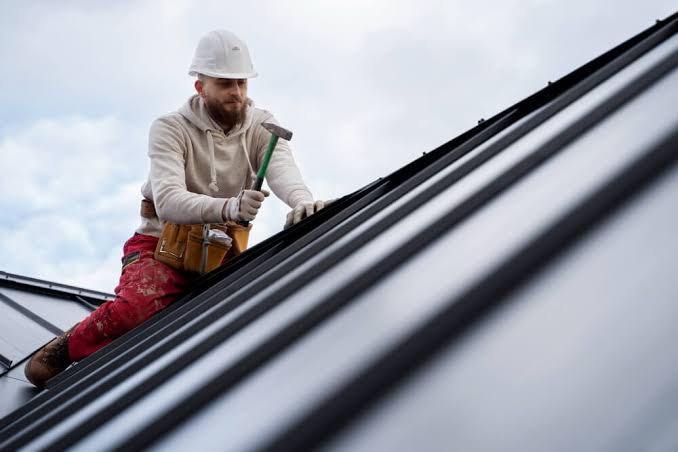Maintaining a commercial building involves numerous responsibilities, and one of the most critical aspects is ensuring the integrity and functionality of its roof. A commercial roof surveys not only protects the structure and its contents but also contributes significantly to energy efficiency and overall property value. Regular roof surveys are essential for detecting potential issues early, ensuring safety, and prolonging the roof’s lifespan. Here’s a detailed look at why these surveys are indispensable for any commercial property owner or manager.
1. Early Detection of Issues
Regular roof surveys allow for the early detection of problems such as leaks, cracks, and deterioration of materials. Identifying these issues promptly can prevent them from escalating into more significant problems that could compromise the roof’s integrity and require costly repairs or even premature replacement. Early detection through routine inspections enables timely intervention, saving both time and money in the long run.
2. Prolonging Roof Lifespan
A well-maintained roof lasts longer. By conducting regular surveys and addressing minor issues promptly, property owners can extend the lifespan of their commercial roofs. This proactive approach helps avoid the need for premature roof replacements, which can be a substantial capital expense. Prolonging the roof’s lifespan also enhances the property’s overall value and reduces the environmental impact associated with frequent roof replacements.
3. Preserving Property Value
The condition of a building’s roof significantly impacts its overall value. A poorly maintained or deteriorating roof can decrease property value and deter potential buyers or tenants. Regular roof surveys ensure that the roof remains in optimal condition, preserving the property’s value and attractiveness in the real estate market. It also reflects positively on the business’s reputation, demonstrating a commitment to quality and maintenance.
4. Ensuring Safety and Compliance
Safety is paramount in any commercial building. A structurally compromised roof poses risks not only to the building occupants but also to anyone in the vicinity. Regular roof surveys help identify potential safety hazards such as loose materials, weak spots, or inadequate drainage systems. Addressing these issues promptly ensures a safe environment for employees, customers, and visitors.
Moreover, compliance with safety regulations and building codes is mandatory for commercial properties. Regular roof inspections ensure that the roof meets these standards, reducing liability risks associated with non-compliance. It also demonstrates due diligence on the part of the property owner or manager in maintaining a safe and secure building environment.
5. Optimizing EnerMaintaining a commercial building involves numerous responsibilities, and one of the most critical aspects is ensuring the integrity and functionality of its roof. A commercial roof surveys not only protects the structure and its contents but also contributes significantly to energy efficiency and overall property value. Regular roof surveys are essential for detecting potential issues early, ensuring safety, and prolonging the roof’s lifespan. Here’s a detailed look at why these surveys are indispensable for any commercial property owner or manager.
1. Early Detection of Issues
Regular roof surveys allow for the early detection of problems such as leaks, cracks, and deterioration of materials. Identifying these issues promptly can prevent them from escalating into more significant problems that could compromise the roof’s integrity and require costly repairs or even premature replacement. Early detection through routine inspections enables timely intervention, saving both time and money in the long run.
2. Prolonging Roof Lifespan
A well-maintained roof lasts longer. By conducting regular surveys and addressing minor issues promptly, property owners can extend the lifespan of their commercial roofs. This proactive approach helps avoid the need for premature roof replacements, which can be a substantial capital expense. Prolonging the roof’s lifespan also enhances the property’s overall value and reduces the environmental impact associated with frequent roof replacements.
3. Preserving Property Value
The condition of a building’s roof significantly impacts its overall value. A poorly maintained or deteriorating roof can decrease property value and deter potential buyers or tenants. Regular roof surveys ensure that the roof remains in optimal condition, preserving the property’s value and attractiveness in the real estate market. It also reflects positively on the business’s reputation, demonstrating a commitment to quality and maintenance.
4. Ensuring Safety and Compliance
Safety is paramount in any commercial building. A structurally compromised roof poses risks not only to the building occupants but also to anyone in the vicinity. Regular roof surveys help identify potential safety hazards such as loose materials, weak spots, or inadequate drainage systems. Addressing these issues promptly ensures a safe environment for employees, customers, and visitors.
Moreover, compliance with safety regulations and building codes is mandatory for commercial properties. Regular roof inspections ensure that the roof meets these standards, reducing liability risks associated with non-compliance. It also demonstrates due diligence on the part of the property owner or manager in maintaining a safe and secure building environment.
5. Optimizing Energy Efficiency
An efficiently maintained roof contributes to the overall energy efficiency of a commercial building. Proper insulation, sealing, and ventilation play crucial roles in reducing heating and cooling costs throughout the year. Regular roof surveys identify potential energy efficiency improvements, such as repairing insulation, sealing gaps, or installing reflective coatings. These measures not only lower operational costs but also enhance the building’s sustainability profile by reducing energy consumption and carbon emissions.
6. Preventing Business Disruption
Unexpected roof problems can disrupt business operations, causing inconvenience to tenants, employees, and customers. Regular roof surveys help mitigate such disruptions by identifying and addressing issues before they escalate. Proactive maintenance ensures that the roof remains in optimal condition, minimizing the likelihood of emergency repairs or temporary closures due to roof-related issues. This continuity in operations is crucial for maintaining productivity and customer satisfaction.
7. Insurance Compliance and Coverage
Many insurance policies require regular roof inspections to maintain coverage. Compliance with these inspections is essential for ensuring continuous insurance protection against potential roof-related damages, such as leaks or structural failures. Regular surveys provide documented proof of the roof’s condition, which can be crucial in the event of an insurance claim. Non-compliance with inspection requirements may result in coverage exclusions or claim denials, exposing the property owner to financial risks.
gy Efficiency
An efficiently maintained roof contributes to the overall energy efficiency of a commercial building. Proper insulation, sealing, and ventilation play crucial roles in reducing heating and cooling costs throughout the year. Regular roof surveys identify potential energy efficiency improvements, such as repairing insulation, sealing gaps, or installing reflective coatings. These measures not only lower operational costs but also enhance the building’s sustainability profile by reducing energy consumption and carbon emissions.
6. Preventing Business Disruption
Unexpected roof problems can disrupt business operations, causing inconvenience to tenants, employees, and customers. Regular roof surveys help mitigate such disruptions by identifying and addressing issues before they escalate. Proactive maintenance ensures that the roof remains in optimal condition, minimizing the likelihood of emergency repairs or temporary closures due to roof-related issues. This continuity in operations is crucial for maintaining productivity and customer satisfaction.
7. Insurance Compliance and Coverage
Many insurance policies require regular roof inspections to maintain coverage. Compliance with these inspections is essential for ensuring continuous insurance protection against potential roof-related damages, such as leaks or structural failures. Regular surveys provide documented proof of the roof’s condition, which can be crucial in the event of an insurance claim. Non-compliance with inspection requirements may result in coverage exclusions or claim denials, exposing the property owner to financial risks.











